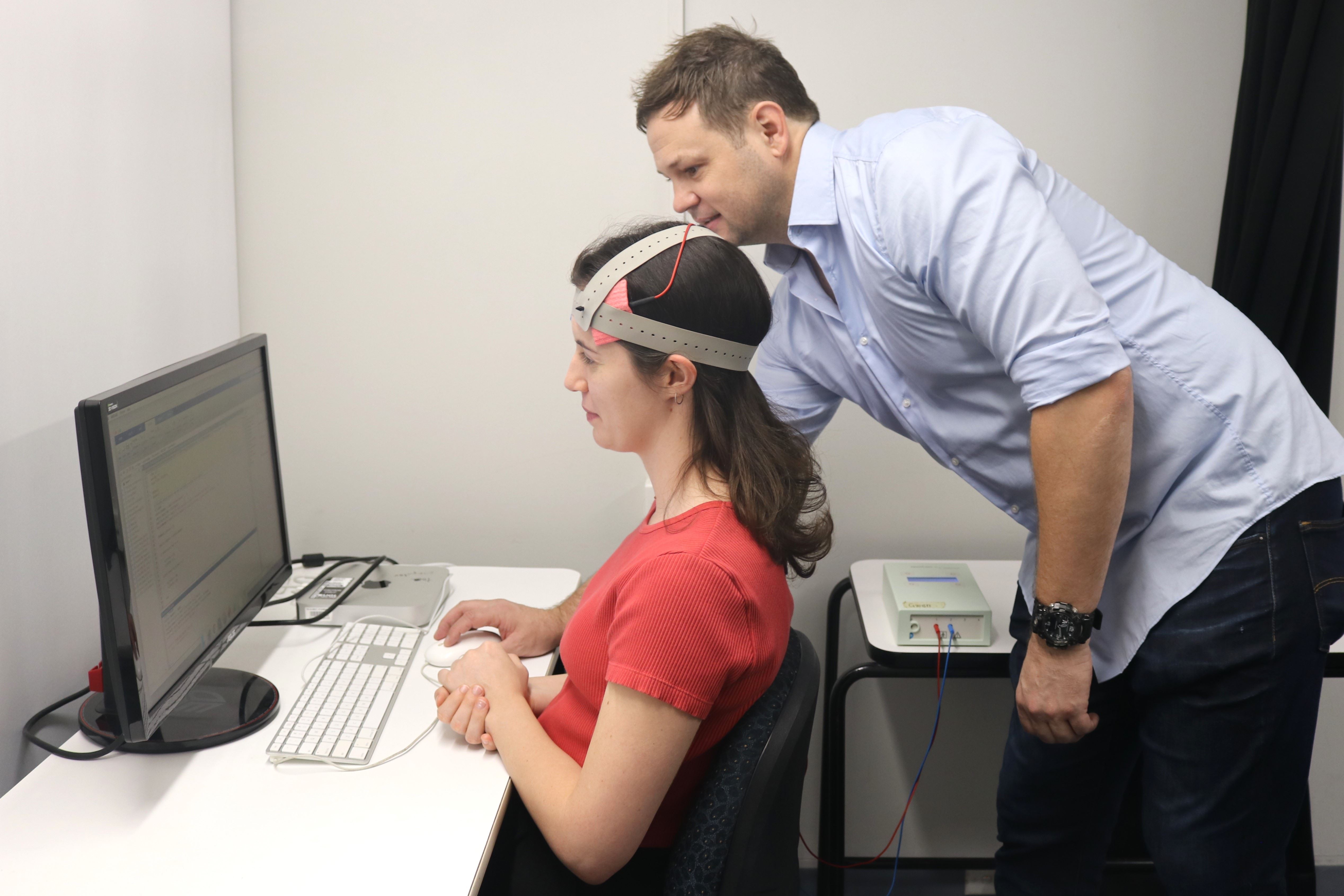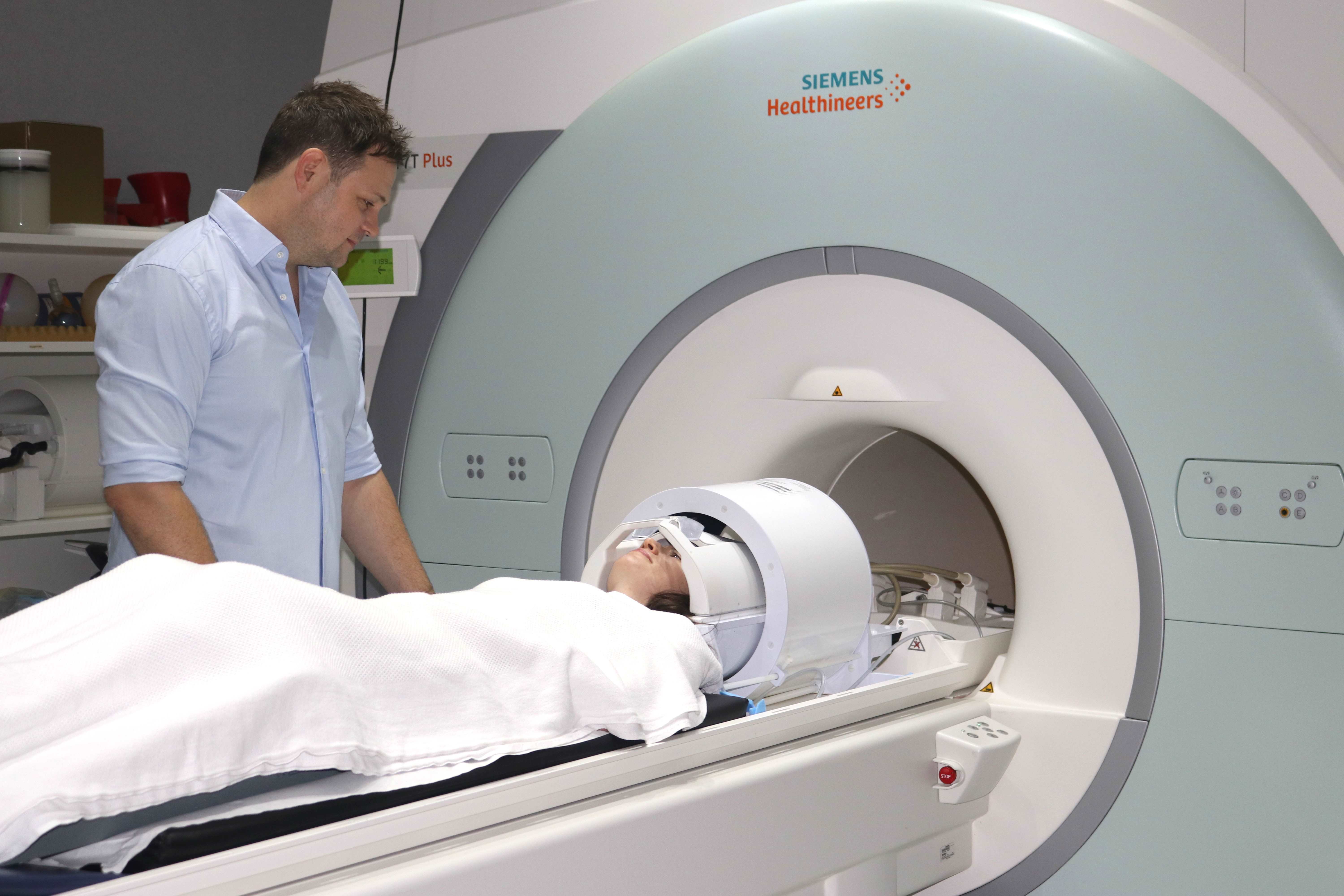
University of Queensland researchers have found a combination of multitasking training and brain stimulation results in enhanced performance on an untrained task, a phenomenon known as ‘transfer’.
Dr Shane Ehrhardt from UQ’s School of Psychology said the study is the largest to date to examine the brain chemistry behind enhanced cognitive performance following combined brain training and brain stimulation.
“We combined multitasking training with a non-invasive brain stimulation technique, known as transcranial direct current stimulation, to target the prefrontal cortex, a region of the brain responsible for managing higher level executive functions,” Dr Ehrhardt said.
“Before and after training, we used neuroimaging, to assess the brain mechanisms that might facilitate the transfer of learnt skills to tasks participants haven’t trained on.
“Participants who received electrical stimulation to either the left or right prefrontal regions during multitasking training performed better on a task they didn’t train on, and this benefit sustained for at least one month later, compared to those who received placebo training and stimulation.
“The skill transfer effect was evident immediately after training and for around 30 days when we tested in a follow-up session.”
The study included 178 healthy participants between the ages of 18 and 40.
Each participant completed a total of 10 sessions, which included pre, post, and follow-up cognitive testing, four combined transcranial direct current stimulation and training sessions, and three brain imaging sessions, totalling around 4000 participant hours.

Professor Paul Dux from UQ’s School of Psychology said the results highlight how cognitive training paired with brain stimulation could benefit people in cognitively demanding fields such as defence, emergency response, or air traffic control.
“In the future this work could lead to enhanced approaches for helping people to better multitask, process information efficiently, and make sound decisions under pressure,” Professor Dux said.
“By understanding the neurophysiological factors that promote skill transfer, we may be able to design more efficient training programs to enhance cognitive performance across a broader range of tasks.
“Brain stimulation is also being used more and more in clinical contexts to treat conditions such as depression.”
The study is published in the Journal of Neuroscience.
Media contact
Faculty of Health and Behavioural Sciences Communications
habs.media@uq.edu.au



